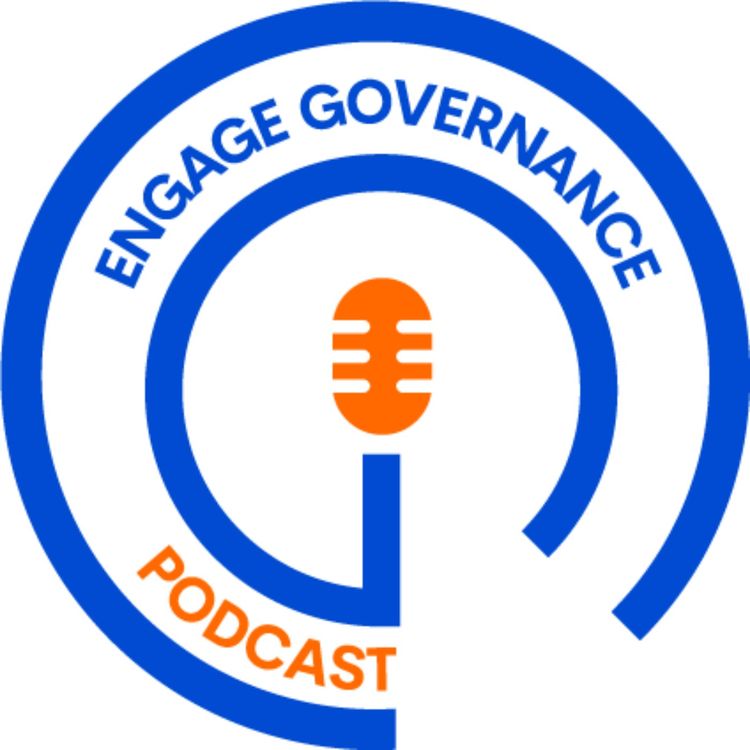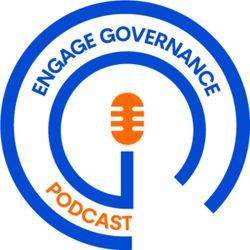Share

Engage Governance
How to have difficult conversations
Season 1, Ep. 18
•
In this podcast Sophie Paton-McDermott, a partner at Make Happy, explains how to approach and conduct difficult conversations. She argues that being skilled at having difficult conversations can make you more effective and advises being strategic about the conversations you have. Sophie says it’s important not to put off tricky conversations and describes how reframing a conversation in your mind, as well as using breathing techniques, can help you cope. She says it’s natural to become defensive and/or emotional and advises naming emotions to achieve a constructive conversation. Sophie argues the best conversations happen in person when the timing is right.
More episodes
View all episodes

22. Making carve-out deals a success
31:20||Season 1, Ep. 22In this podcast, Ben Fielding, Head of Sales for Global Entity Management at TMF Group, talks about the challenges facing organisations in carve-out situations. Ben explains that these deals usually involve part of a large business being sold, and therefore ‘carved-out’, to allow it to get the attention and investment it needs to be successful. Ben outlines the importance of timelines and planning to make the transition period smooth for both clients and employees. Among other things, this involves understanding local requirements and cultural quirks and factoring in the time it takes to set up a bank account.
21. The Evolution of AGMs
26:52||Season 1, Ep. 21In this podcast Peter Fowler, Managing Director at Lumi UK, looks at how annual general meetings (AGMs) are changing. Peter believes the hybrid format is the most effective because it allows physical and virtual attendance and provides equal opportunity for all shareholders to participate and put questions to the board. Hybrid meetings also allow the board to construct a more thematic Q&A session and give the company more opportunities to manage potential disruption from activist shareholders. Peter also describes how the move to virtual or hybrid meetings coupled with the priorities of the modern-day shareholder are refocussing the event on true business matters.
20. Collective intelligence
29:12||Season 1, Ep. 20In this podcast, Jennifer Sundberg, Co-CEO of Board Intelligence, discusses her company’s theory of collective intelligence, which advocates moving away from superstar CEOs and board-centric decision-making to recognising the whole organisation’s potential to make great decisions. In practice this means applying Board Intelligence’s core principles throughout a business not just in the boardroom. For example, asking simple questions to spark critical thinking. Jen says we need to rediscover our childhood tendency to ask questions and unlearn writing conventions that stop us communicating clearly. She adds that the approach is particularly important now when the ability to move fast and take quick decisions is what sets a business apart.
19. ESG Reporting: Where to next?
33:56||Season 1, Ep. 19In this podcast Daniel Roach, Senior Technical Lead at Company Matters, discusses the latest developments in ESG reporting. The conversation covers both voluntary and mandatory ESG requirements, looking particularly at the new ISSB standards, the TNFD and the proposed changes to the UK Corporate Governance Code. Daniel discusses increasing investor pressure on companies in relation to ESG, why ESG matters to governance professionals, and how to decide which ESG standards to report against. He argues that understanding your stakeholders will help you identify the correct ESG focus for your business and that good ESG reporting is honest and transparent.
17. Rethinking conflict at work
33:14||Season 1, Ep. 17In this podcast Alex Efthymiades, Director and Founder of Consensio, discusses workplace conflict. Alex argues we aren’t taught the skills we need to successfully navigate conflict; therefore, we avoid it because it feels uncomfortable. However, Alex believes conflict can be positive, enabling us to clear the air and become more productive. She says it’s important to create a workplace environment where healthy conflict can flourish. This can be done by establishing psychological safety where everyone feels able to speak up without being punished. This is particularly important in the boardroom, where constructive challenge is needed to avoid groupthink.
16. Secretary Bird 'disarming danger'
36:34||Season 1, Ep. 16In this podcast Sharon Constançon, CEO of Genius Boards, offers advice for company secretaries and governance professionals on managing the challenges they face in their role, from gaining feedback and stretching themselves to learning tactics to avoid becoming overwhelmed. Sharon advises compartmentalising the noise of the role to gain control of it. She describes how to handle the inevitable left hook and the value of being the trusted expert who absorbs panic rather than creating it. Sharon highlights the power of conversation initiated by the governance professional to fix a broken relationship, as well as discussing how to own up to a mistake and how to avoid being seen as a ‘blocker’.
15. Risk governance for a changing landscape
27:47||Season 1, Ep. 15In this podcast, James Beasley, Senior Director at Nasdaq Governance Solutions, discusses how organisations and boards can evolve their risk management practices in response to a changing risk landscape. James outlines how non-financial risks are becoming more prominent and discusses the challenges in managing these less tangible, more complex risks. He argues that their universal nature means that organisations can no longer afford to forgo risk oversight and governance. James describes how many organisations are innovating to ensure they are equipped to manage what is becoming an increasingly complex space.
14. Tackling ESG in the boardroom
23:12||Season 1, Ep. 14In this podcast Susan Stenson, a partner at Independent Audit, discusses the impact that environment, social and governance (ESG) issues are having in the boardroom. She outlines the importance of linking these areas back to the overall purpose and strategy of the organisation to enable directors to understand which issues they should focus on and how they should communicate their approach to their stakeholders. Susan outlines how governance lays the foundations for a strong response to ESG issues from boards of directors. She also argues that if the board is honest about how it has decided its ESG priorities, its approach is much more likely to be successful.